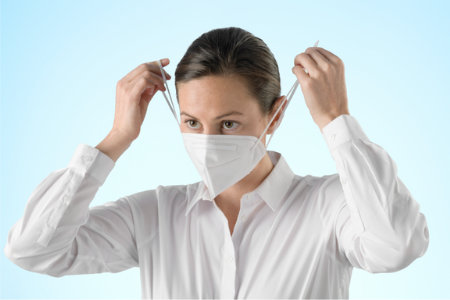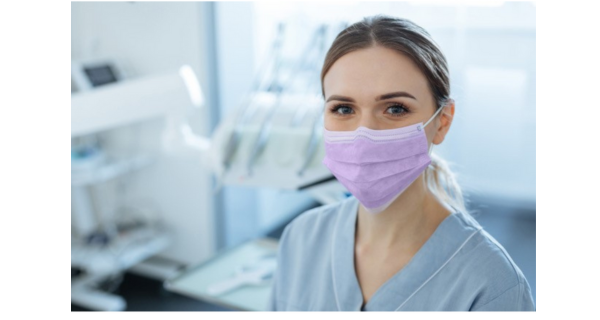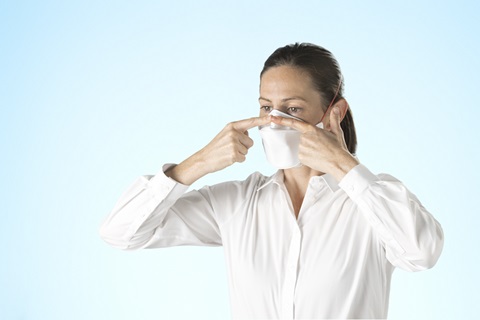The way viruses spread depends on several factors, including the form of the virus and the host. With that said, medical face masks can help protect you against viruses that are spread through infectious bodily fluids and respiratory droplets.
But what are viruses and how do they spread? Read on to learn more about virus transmission and what you can do to protect yourself against viruses.
What are viruses?
Viruses are small infectious agents that are simple in structure. Unlike bacteria, viruses are not living organisms. They lack the machinery and metabolic processes necessary to sustain life on their own. Instead, viruses rely on the cellular mechanisms of a host organism to replicate and reproduce. Humans, animals, plants, bacteria, and fungi can all play host to viruses.
Viruses are responsible for a wide range of diseases, from the common cold, Middle East Respiratory Syndrome (MERS), influenza and COVID-19 to more serious illnesses such as HIV and AIDS.
How do viruses spread?
Viruses can spread in a variety of ways depending on the type of virus and the host organism. Here are some common ways that viruses spread:
- Respiratory transmission: virus particles can spread when an infected individual coughs, sneezes, talks or breathes, releasing respiratory droplets containing the virus into the air. Smaller droplets, below 5 microns, or 5 millionths of a metre, are called aerosols. Because of their size, these light, small droplets can remain suspended in the air for lengthy periods, and they can travel farther than larger droplets. These respiratory droplets can then be inhaled by other people, where the virus particles land on the mucous membranes of the next host's upper respiratory tract and start to spread, infecting that person.
- Contact transmission: virus particles can spread through direct or indirect contact with an infected individual or a contaminated surface. Direct contact transmission occurs when an infected person comes into direct contact with another person's skin, mucous membranes, or bodily fluids. Indirect contact transmission occurs when a person touches a surface contaminated with the virus, such as a doorknob or table, and then touches the mucous membranes of their mouth, nose, or eye. From here, viruses spread to the respiratory tract and infect the new host.
- Vector-borne transmission: some viruses are spread by insects or other animals, known as vectors, which transmit virus particles from an infected host to a new host. For example, mosquitoes can spread malaria or dengue fever, ticks transmit Lyme disease and bats can spread the novel coronavirus that causes COVID-19.
- Sexual transmission: certain viruses can be transmitted through the genital tract from sexual contact with an infected individual. Viruses including HIV, herpes, and human papillomavirus (HPV) can be carried via bodily fluids exchanged during sexual activity.
- Faecal-oral transmission: some viruses can spread when people encounter faecal matter that contains virus particles from an infected person. These viruses are transmitted through contaminated food or water or poor hygiene practices.
While it may seem like you are constantly exposed to many viruses daily, not all viruses infect people. Many viruses cannot survive outside of their host organism for an extended period. The stability of viruses depends on a number of environmental factors, including temperature, humidity, or the surface composition. The human body also has its own natural defences against viruses, including the skin and immune system that viruses must survive to infect humans.
How to protect yourself against viral infection
In-light-of the COVID-19 pandemic, most of us are used to taking simple measures to protect ourselves against virus transmission. While you are often exposed to infectious diseases in everyday life, here are a few precautions you can take to protect yourself against virus transmission.
- Hand hygiene: wash your hands frequently with soap and water for at least 20 seconds, especially after using the restroom, coughing, sneezing, or blowing your nose. If soap and water are not available, use an alcohol-based hand sanitiser.
- Avoid close contact with sick people: avoid people who are sick, or if you are sick yourself, stay home from work or school to avoid spreading the infection to others.
- Cover your mouth and nose: prevent the spread of virus particles by covering your mouth and nose with a tissue when you cough or sneeze and dispose of the tissue immediately before following hand hygiene. If you do not have a tissue, cough or sneeze into your elbow or sleeve, not your hands.

- Wear a mask: during a pandemic or cold and flu season, wearing a face mask can help prevent virus transmission. Choose a mask that fits snugly over your nose and mouth and replace it every four hours or when it becomes damp, dirty, or damaged.
- Maintain physical distancing: keep at least one metre away from other people, especially those who are sick or showing symptoms of illness.
- Practice good hygiene: avoid touching your face, especially your eyes, nose, and mouth. Clean and disinfect frequently touched objects and surfaces, like doorknobs, countertops, keyboards, and mobile phones.
Detmold Medical has a complete range of face masks, respirators, and other PPE to help protect you against virus transmission. Use our face mask comparator to learn more about our range of face masks or browse our collection of high-quality masks and respirators.






